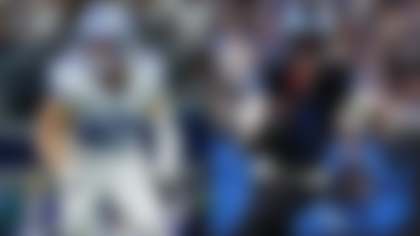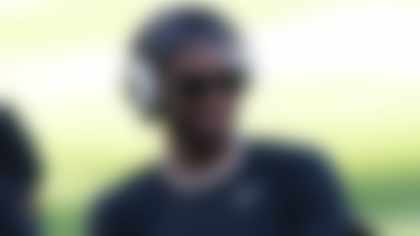By Bill Bradley, contributing editor
Tempe, Arizona, will host the 11th annual Pat's Run on Saturday, a 4.2-mile fun run that is capped at 30,000 participants. The event honors former Arizona Cardinals safety and late Army Ranger Pat Tillman, who died because of friendly fire while serving in Afghanistan.
Proceeds from Pat's Run go to the Tillman Military Scholars program, which helps to fund scholarships for former servicemen and women, helping them continue their education. More than 350 scholarships have been presented since the program was started by the Pat Tillman Foundation.
Mike Kothakota, a 2013 Tillman Scholar, talked to NFL Evolution on Thursday about what Tillman's legacy means to him, how he is using his Tillman scholarship and his participation in Saturday's Pat's Run.
As a Tillman Military Scholar, you're always going to be associated with Pat Tillman. What does his legacy mean to you?
I think Pat's legacy is hard to put into words. It's so big. Part of it is, because of his life and his values, I get to keep doing things I've always cherished. And I get to be part of that legacy, continuing a life of service and my pursuits of life-long education. It's not something everyone gets to do. Being associated with the Pat Tillman Foundation is such a huge honor. Because of him, I get to be part of a community enhances our life every day.
What led you to apply to be a Tillman Scholar?
I had gotten into the Predictive Analytics School at Northwestern University. The G.I. Bill doesn't cover all of the costs and I was looking for ways to continue my education while not impacting my family too much. I started reading about it the Tillman Scholars program and it really resonated with me. It talked about the applicants being an investment in future of country and I really understood that.
You just received your masters in that Northwestern program. What drew you to that major?
I like math, and I like data and statistics. I like knowing the way things work and the way things happen. It's a way to understand the world around you and understand how businesses succeed and fail. … I own a couple of businesses, so it was really interesting. I figured if I was going to go back to school, I wanted to do something I had never done before. I didn't have a strong pure math background, but I had a decent applied math and financial math background. … I had never done computer programing, which is part of the program. It's a really great opportunity to learn things that I never would have learned before.
As a Tillman Scholar, you served in the military. I understand your parents also served. Is that what made you join the military?
It's what led me to the military. It was never a requirement that I serve. But I grew up around Army people. My brother joined the Air Force. … All of those things led me to decide to join the service. I think having parents that had served made the transition so it wasn't a culture shock for me. I probably took it a little bit better than most people do when you join the military. It was always our choice, but to me I was always going to serve at some point and the military seemed to be the way to do it.
What's the most memorable time during your military service?
During the Iraq War. It was kind of interesting that we were told before we deployed that this was going to be a defining moment in our lives. We all kind of laughed it off, but for sure a lot of the experiences during war defined who I am as a person now. I've definitely changed – I think for the better. I would say the most memorable of that time was probably being around the other guys, not just on missions. It was important to be your whole self with people. I think a lot of people overlook that part of military life. When you serve in units, you find yourself able to be completely open and frank with your colleagues – in this case your fellow soldiers.
In the past you've raised funds to help the Tillman Foundation by competing in the Pat's Run. Will you be participating in this Saturday's Pat's Run?
I am going to be participating this Saturday. I won't get my fastest time, but I will finish.
What is it about the Pat's Run that makes it such a unifying event for 30,000 people?
What I like about it is it draws people from so many walks of life. Some people don't even know why they're going to it, but they know that it's important. And people ask about what's going on with the Scholars, they learn about Pat. It's just keeps people coming back. What's amazing is the massive amount of people running in it. They can't have any more than (30,000). And then you start seeing the shadow runs pop up. It's really just an amazing event. I ran better (two years ago) than I would have been in training for that race. There's so much energy. There's guys running with the American flag; there's guys who just came off deployment. … It feels like a really nice get-together with a lot of people who really care about this cause.
You've already started several small business. What's next for you?
First, to continue to grow those businesses. I've thought about getting a PhD in statistics or applied math. I don't know if I have the bandwidth to do that right now. But I don't ever want to stop going to school. … I like learning. I spend a couple of hours a day reading. But next for me is to shore up my businesses, maybe travel, but definitely looking at getting another degree.



